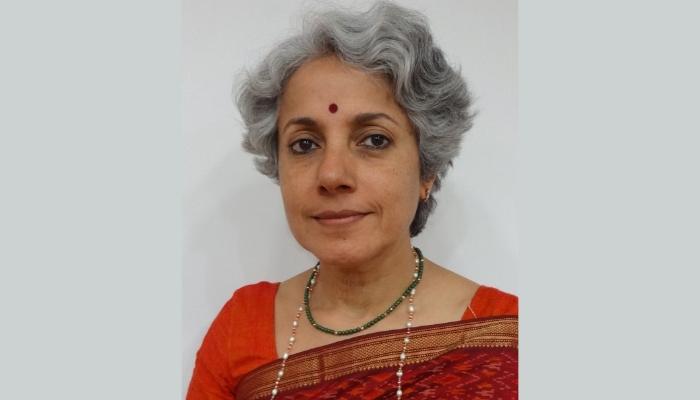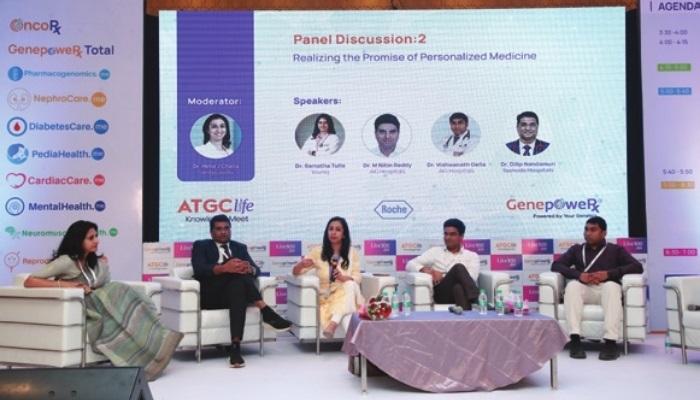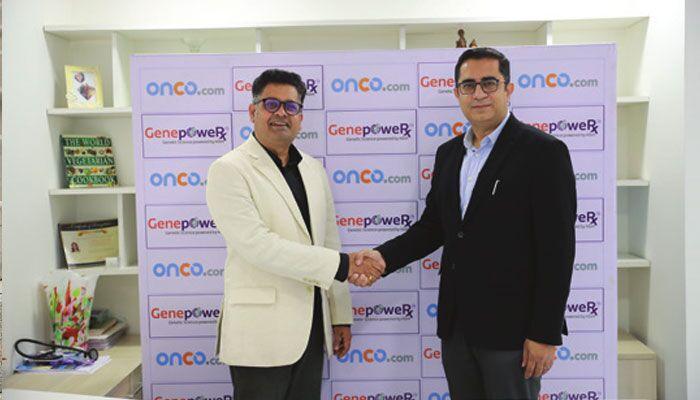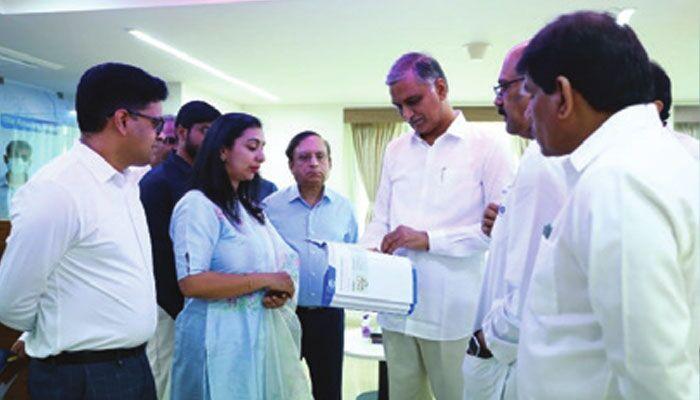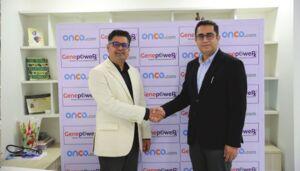
Genomics India 2023 – Has Genomics delivered its promise for healthcare?’ – By Dr. Hima Challa
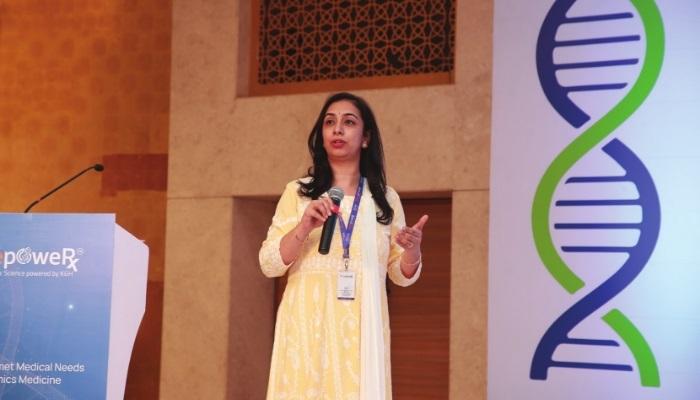
Genomics India Conference 2023 (GIC 2023) held at the NIMHANS convention center, Bengaluru is aligned with the 20th year of the completion of the Human Genome Project, and Genotypic’s 25th year of inception. Around 50 speakers and more than 500 participants from 7 countries attended the GIC 2023. The conference had an exciting line of speakers and panelists including renowned key opinion leaders from the Indian and International diaspora.
The list of speakers included world-renowned experts such as Nobel Laureate Prof. Harold Eliot Varmus, Director of NHGRI; Dr. Eric Green, Unit Head of the WHO; Dr. Anna Laura Ross, and Children’s National Research Institute’s Prof. Rob Freishtat. Other distinguished speakers were Dr. Deus Ishengoma from the National Institute of Medical Research in Tanzania, Executive Chairman of HCG Dr. Ajai Kumar, and Dr. Umesh Shaligram from SII and more.
This conference had a total of 14 sessions that provided a platform to interact with key opinion leaders over important topics of the genomics industry and widen the network across Industry (Diagnostics, Bio-pharma, Vaccine Development, Agriculture, etc.) and academia.
GenepoweRx was one of the sponsors of this event. They had the opportunity to interact with the bigwigs of the genomics/biotech sector in India as well as 7 other countries that participated in GIC 2023.
Dr. Hima Challa, Co-founder & Director at K & H Personalized Medicine Clinic, India, was a panelist at the Round Table session titled “Has Genomics delivered its promise for healthcare” held on 2nd February. The panel members also included Dr. Sudha Rao, Founder & Director of Dhiti Omics and Exec. Director at Genotypic Technology; Dr. Vinod Scaria, Principal Scientist at CSIR-IGIB, India; Dr. G. Velmurugan, Scientist at Chemomicrobiomics Laboratory, KMCH Research Foundation, India; Dr. Jayanthi S Shastri, Former Lab Director at Kasturba Hospital for ID, India; Dr. T.L. Srinath, CEO & Director at GenoPhe Biotech Pvt. Ltd, India; and Dr. Nalini Atchayaram, Professor of Neurology at NIMHANS, India.
Dr. Sudha Rao started the round table session by thanking all the panelists for gracing the stage and accepting the invitation to come over and talk a little about Genomics for Healthcare. She introduced all the panelists. Dr. Hima’s discussion highlighted – genomic medicine, its importance in genetic profiling, and its application in healthcare.
Genomic medicine amalgamation with conventional medicine
Genomic medicine is a rapidly growing field that uses a patient’s genetic information to personalize medical care. Dr. Hima Challa spoke about the latest transitions happening in the field of medicine, especially the amalgamation of Genomics into the daily practice of physicians.
Importance of Genomic Medicine
Genomic medicine complements conventional medicine by providing additional information about a patient’s health risks, possible drug reactions, and potential responses to various treatments.
Key to this anticipated shift is the healthcare and scientific integration of patient services through the application of genomics and artificial intelligence technologies, which will be intertwined within the healthcare system to ensure that all patients have equal opportunities to benefit from new developments.
One of the main ways in which genomic medicine reinforces conventional medicine is by helping to identify genetic variants that may predispose a patient to certain diseases. By analyzing a patient’s genetic information, doctors can determine which patients are at a greater risk for developing a particular disease and recommend preventative care.
Genetic Profile and Genomic Medicine
In addition, genomic medicine can help doctors choose the most effective treatment for a patient based on their genetic profile. For example, some drugs may be more effective in patients with specific genetic variants, while others may be less effective or harmful. Finally, genomic medicine can help doctors tailor dosages or choose alternative treatments that are less likely to cause harm.
Application of Genomic Medicine in Patient Treatment
The routine sequencing of genomes will make it possible for many patients to get diagnostic and therapeutic care that is more individualized to their specific needs. Consequently, it should result in a lowering of the degree of side effects and a discernible improvement in the individual’s overall quality of life. Implementing genomics is likely to contribute to the sustainability of the Health System.
Dr. Hima concluded the session by emphasizing the relevance of genomic medicine and the way it is profoundly changing patient care by assisting medical professionals in making alternative treatments, complementing conventional medicine, and improving patient outcomes.
